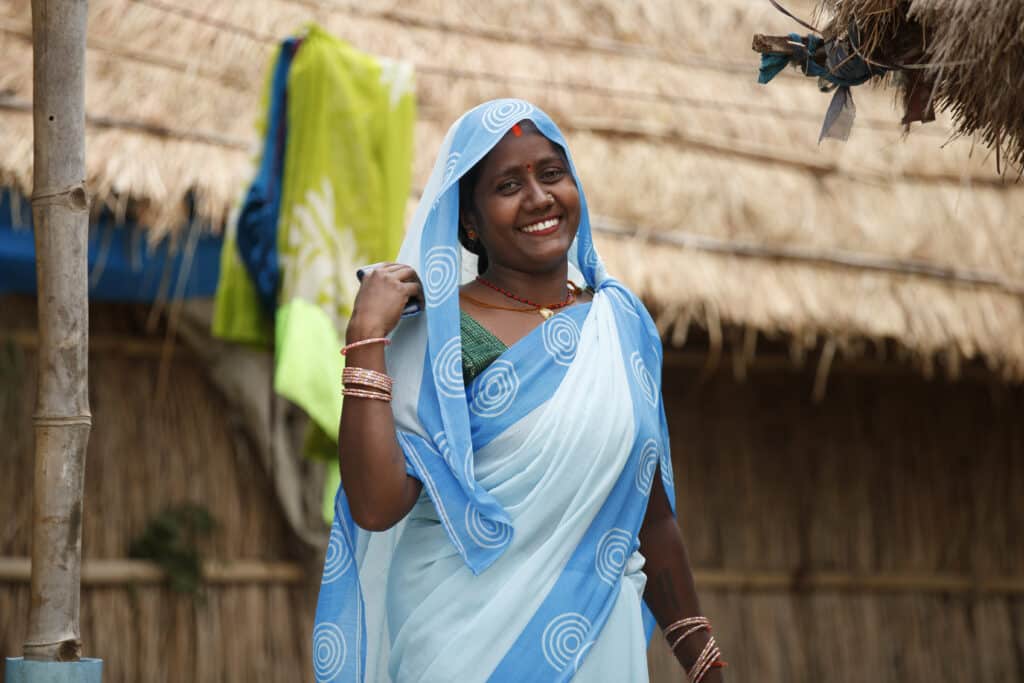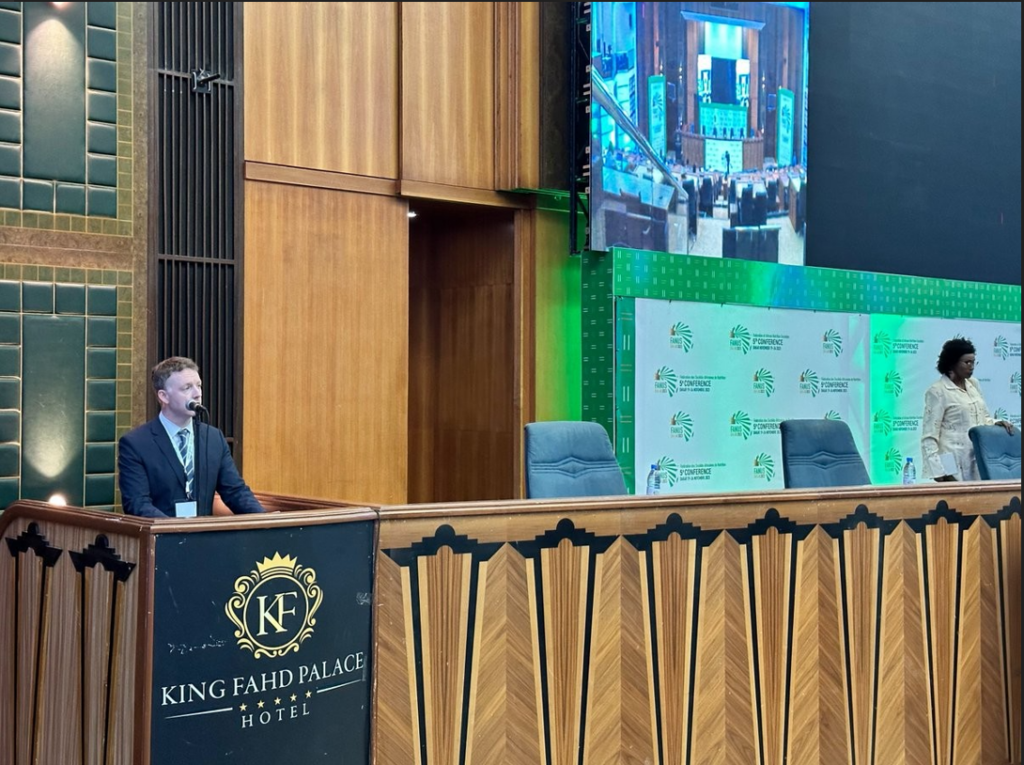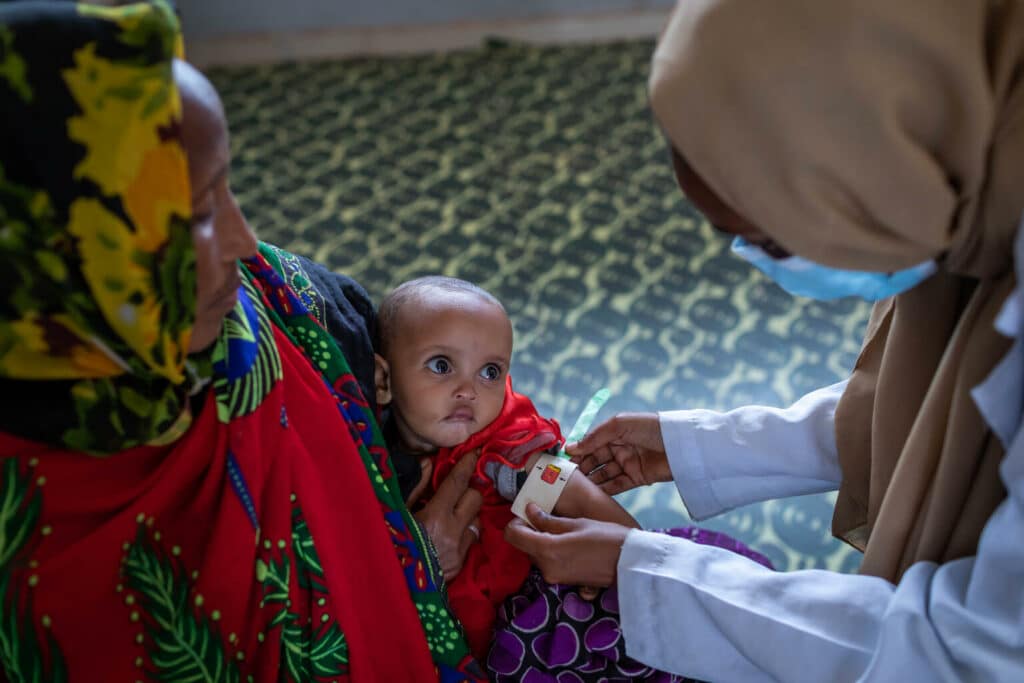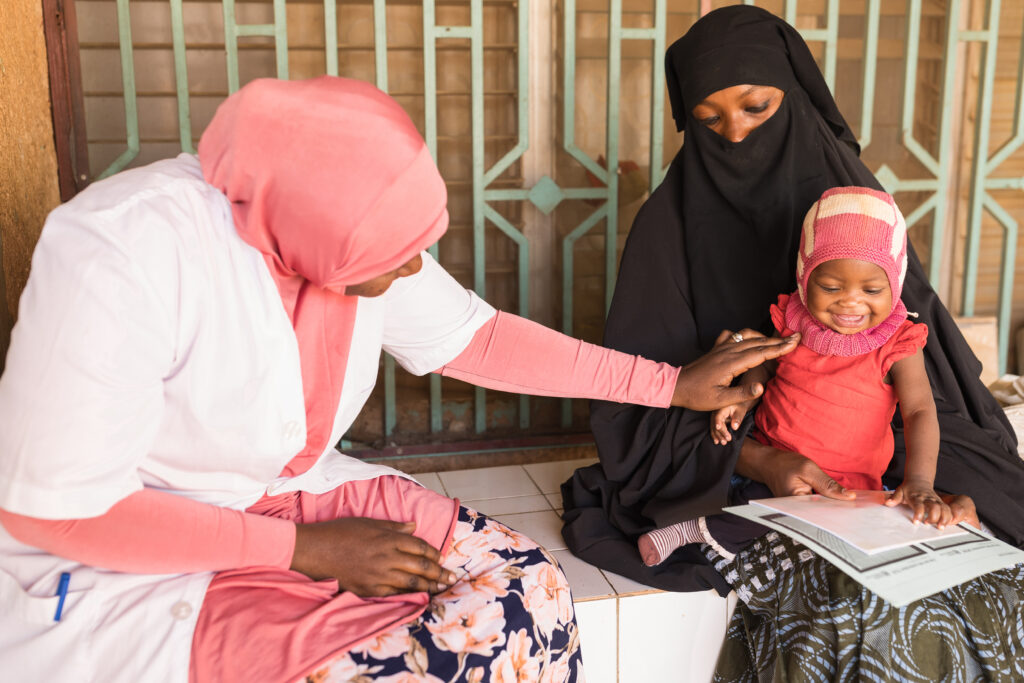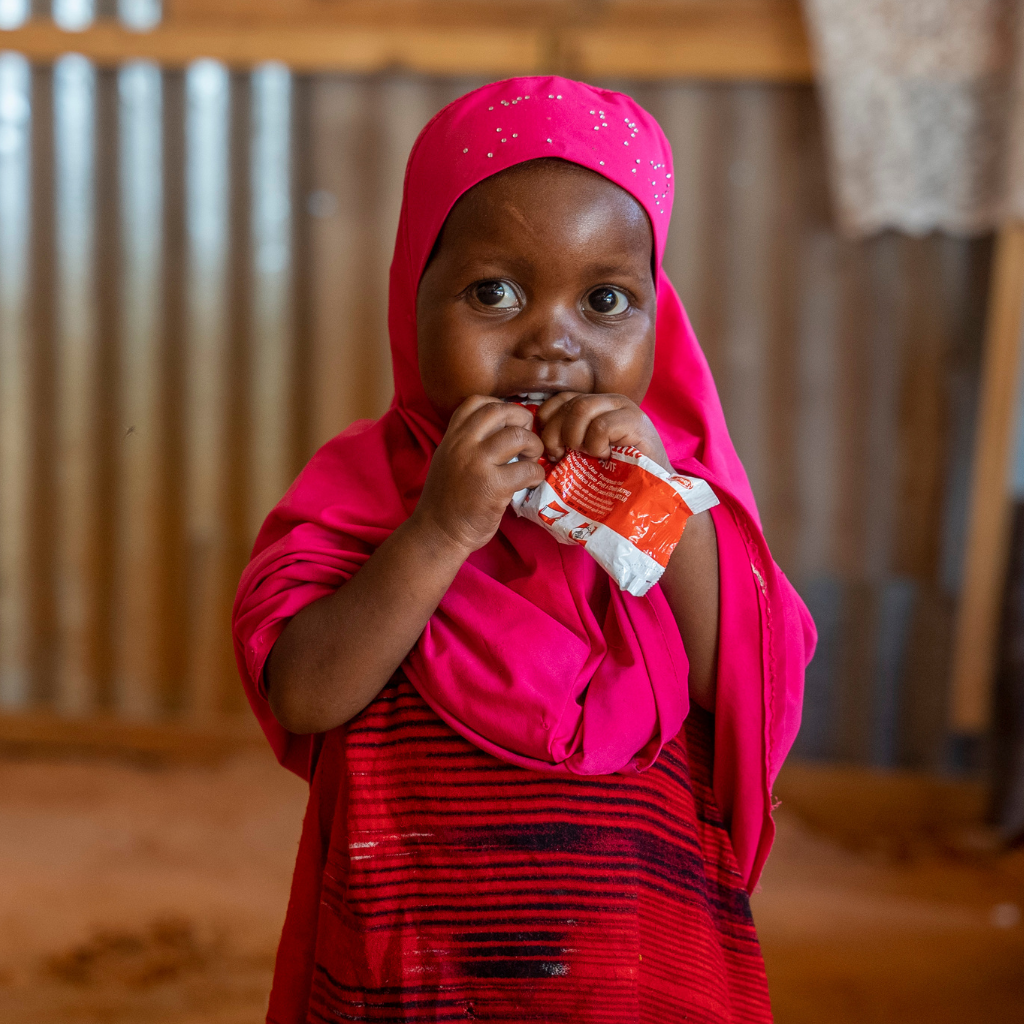Insights from a World Health Assembly Side Event
On May 29, the Eleanor Crook Foundation, the UK Foreign, Commonwealth and Development Office (FCDO), Gavi, the Vaccine Alliance, and the Scaling Up Nutrition (SUN) Movement held an event on the sidelines of the World Health Assembly in Geneva with prominent figures from global health and nutrition to discuss the promising potential of combining immunization and nutrition services. A full recording of the event is available online.
Four speakers representing the organizers of the event, plus a panel of global health experts representing the governments of Nigeria, Somalia, Indonesia, and the Democratic Republic of the Congo, in addition to an expert representing Pakistan, took part in “Strengthening Primary Health Care: Combining Immunization and Nutrition to Improve Children’s Health.” Each participant brought a unique perspective to the topic – and all expressed their excitement for and their belief in immunization and nutrition integration (INI).
Growing Excitement for Immunization and Nutrition Integration
In opening remarks, Dr. Sania Nishtar, CEO of Gavi, spoke passionately about the need for international agencies and organizations to work together to serve communities better. “Let’s look at it from the vantage point of a woman who goes into a primary healthcare facility,” she said. “When a woman walks into a primary healthcare facility with an emaciated child…her objective is to make her child survive….She’s looking for better nutrition for her child. She wants to protect her child against deadly diseases….and she wants value from the primary healthcare center. And we often fail to provide that, because we’ve been fragmented in the way we work.”
Dr. Nishtar also cited an example from her time as Minister of Social Protection in Pakistan, when the country launched a health and nutrition conditional cash transfer program.
“I cannot tell you the value that nutrition brought,” she said, continuing, “[When the project launched] there was a throng of women out there with their children because they knew the value that nutrition would bring….how [providing nutrition services] bolstered immunization in that community is something that we could not have even dreamt of.”
The benefits of pairing immunization and nutrition are mutually reinforcing. Malnutrition and infectious diseases are key factors in child morbidity and mortality, because malnutrition impairs immune responses, increases the risk of infection and lowers vaccine effectiveness. Many of the children who are at high risk of malnutrition are the same children who are missing out on critical immunization services. And infectious diseases deplete the body of resources, which can in turn cause malnutrition.
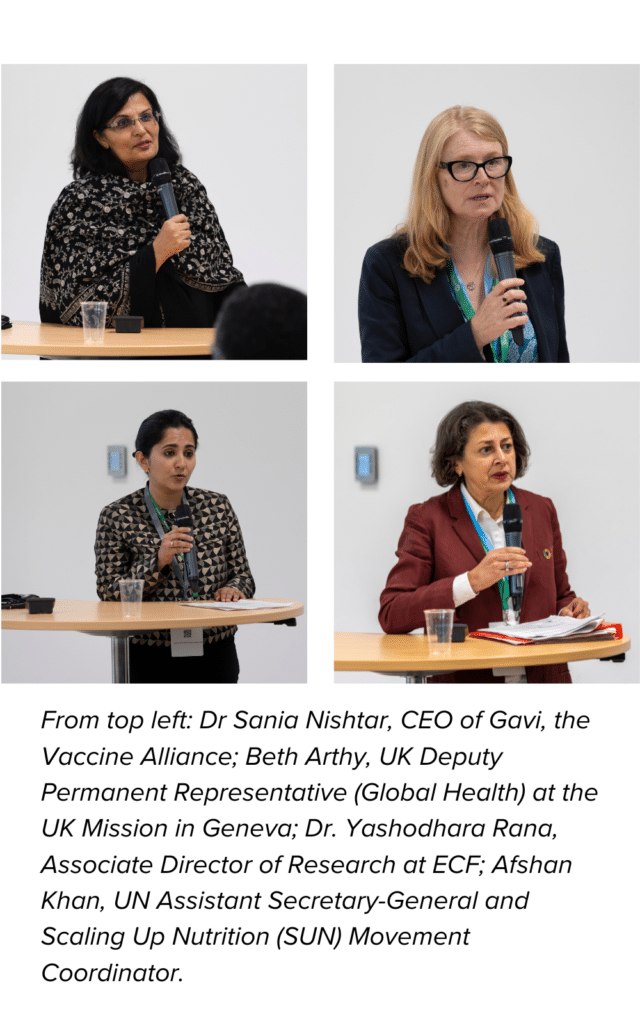
“When a woman walks into a primary healthcare facility with an emaciated child…her objective is to make her child survive….She’s looking for better nutrition for her child. She wants to protect her child against deadly diseases….and she wants value from the primary healthcare center. And we often fail to provide that, because we’ve been fragmented in the way we work.”
Dr Sania Nishtar, CEO of Gavi, the Vaccine Alliance
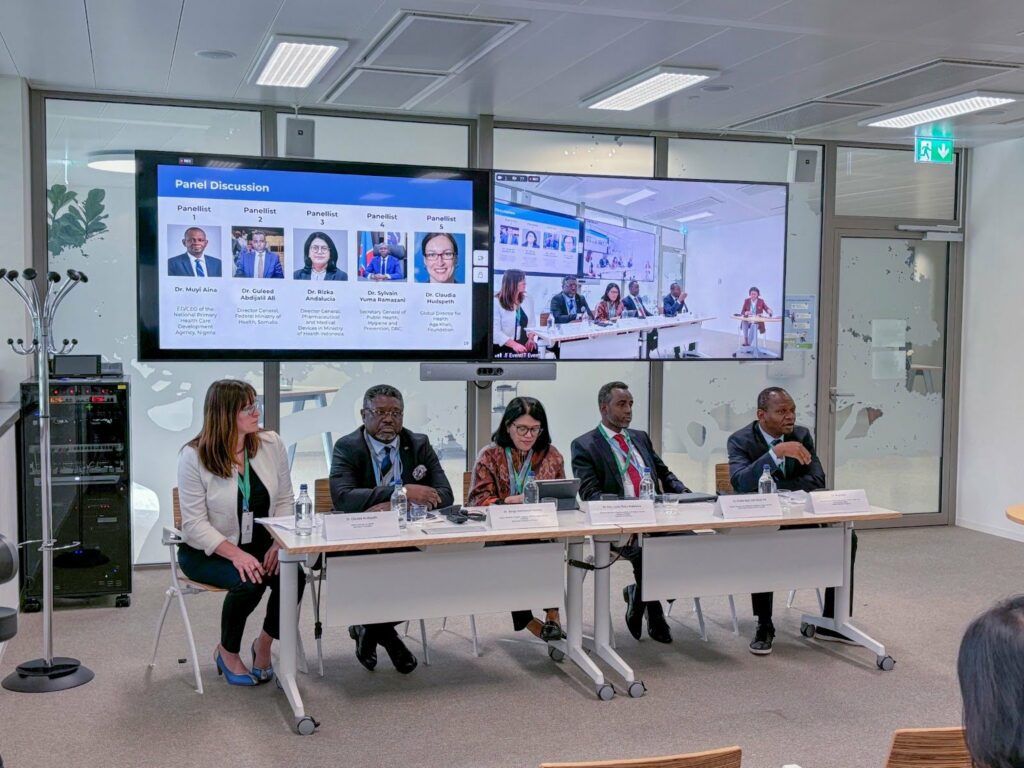
Challenges to Overcome
Challenges exist across contexts, and the panelists who represented countries that are working toward greater integration of services spoke to these.
The panelists spoke, for example, about the lack of joint planning at regional levels of governance, as well as fragmentation created by donors who support specialized services. This lack of collaboration can unintentionally create situations where primary health care centers become focused on offering just one service – forcing families into an impossible position of having to travel long distances for other health services, such as malnutrition treatment.
Dr. Muyi Aina, ED/CEO of the National Primary Health Care Development Agency in Nigeria, noted that Nigeria is currently implementing a sector-wide approach and conducting resource mapping to identify gaps in health services, as well as organizing for overall alignment of health facilities in an attempt to mitigate fragmentation. But, he said, “In many instances, you have entire states that are neglected – both from the government side, but also from the partner side, because no one is paying attention. So what [resource mapping] is doing is making it a bit more visible, and letting us better integrate.”
The panelists also spoke of challenges related to weak outreach for both immunization and nutrition, the need for training healthcare workers so that they feel confident providing patient-centered care when it comes to an integrated package of services, and fragmented health data across multiple digital platforms – which often leads to poor coordination, and results in the under-detection of children who are malnourished and underimmunized.
Opportunities for Advancement of INI
These challenges conversely present opportunities, such as the chance to plan jointly on immunization and nutrition programs at the country-level for more efficient service delivery and to incentivize uptake of both services. Furthermore, donors need to align on activities with national programs, as well as with other donors.
Beth Arthy, the UK’s Deputy Permanent Representative (Global Health) at the UK Mission in Geneva, noted that combining INI services is not new – and that while it’s a sensible concept, there’s still a need for more evidence to support a rollout of these integrated services. She called on partners to support Gavi, SUN, and other partners in expanding and deepening the evidence, and also highlighted a 2023 report by Gavi and ECF as a critical resource on INI evidence.
Dr. Yashodhara Rana, the Associate Director for Research at ECF, was a co-author of that review, and presented its findings to the WHA audience. She delved into the full summary of the evidence for INI demand generation and highlighted key learnings from the review. While more research needs to be done on INI, Dr. Rana described investments that are already being made to build on the evidence base, including ECF and Gavi’s co-funded NutriVax project. This randomized controlled trial will test how big of an effect offering a nutrition supplement will have on measles vaccination rates among children 6-23 months in Yobe State, Nigeria.
“Under certain conditions, there is promise, and there are successful cases [of INI] that have been documented,” Dr. Rana said, continuing that, while the evidence is limited, “The potential to address the double burden of both malnutrition and zero dose [children] is so significant that it does justify further exploration – to see what is possible to do together, instead of working alone.”
Given the barriers that countries face when it comes to integrating services, more needs to be done to ensure that opportunities to counteract them are met with action. There is genuine country-level excitement and interest in INI – and more funding is needed to address the challenges they face and to drive meaningful progress.
“Financing will be key,” Afshan Khan said in her remarks, noting two key moments in 2024: the Gavi replenishment (and Gavi’s 6.0 strategy), and the SUN Movement Global Gathering. Ms. Khan continued that there is an opportunity through these events “to really focus country by country on what are the plans, what are the investment strategies that are needed, and how can we better integrate these services” – and that this strategic approach will culminate in the Nutrition for Growth Summit in 2025. “Proven immunization and nutrition interventions are among the most cost-effective approaches to helping children survive and thrive,” Khan said.
As a global community, there are still challenges to overcome – but all panelists were in unanimous agreement that bundling nutrition and immunization services holds great potential in unlocking huge benefits and saving many children’s lives.
